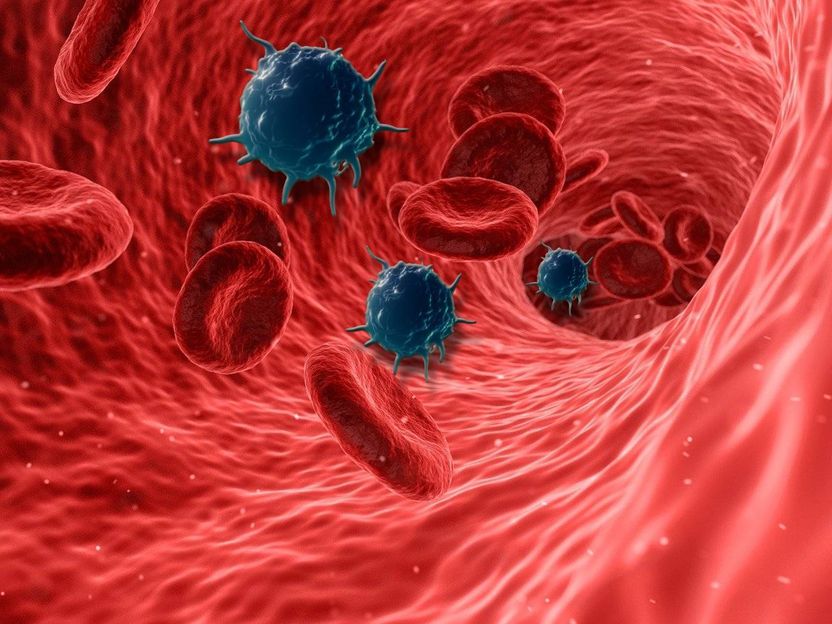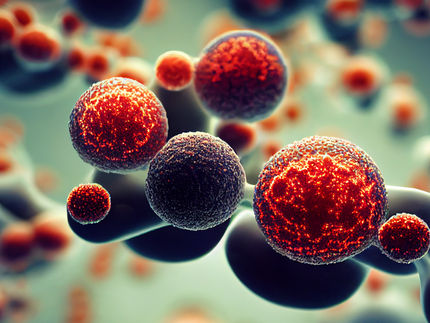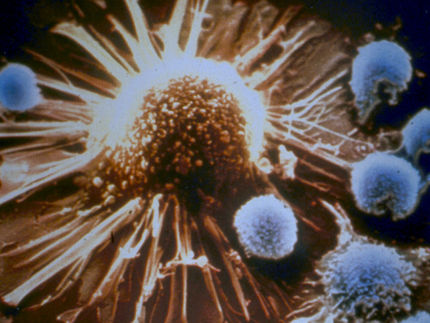Moderate immune response is more effective against leukemia
While the working hypothesis so far has been mainly toactivate T cells as strong as possible, the current results refine this view
The development of immunotherapies against blood cancer could be more successful if T cells are activated moderately rather than excessively. Scientists from the German Cancer Research Center have now been able to show this in mice: If the researchers blocked a cytokine that slows down the immune system, the T cells became exhausted and failed in the fight against leukemia.

Symbolic image
pixabay.com
Immunotherapies are considered a promising approach to treating many types of cancer. The most successful and widely used immunotherapies target so-called immune checkpoint molecules, which act like natural brakes on the immune system. The drugs, also known as "checkpoint inhibitors", release these brakes so that the T cells of the immune system can recognize and attack tumors.
However, the checkpoint inhibitors available to date are far from effective against all types of cancer. Even in chronic lymphatic leukemia (CLL), the most common blood cancer in adults, this form of therapy has so far failed. Martina Seiffert's team at the German Cancer Research Center (Deutsches Krebsforschungszentrum, DKFZ) was therefore on the lookout for other molecules that act as immune brakes and that are suitable as targets for therapies against CLL. The DKFZ researchers were particularly interested in the immune messenger interleukin 10 (IL-10), which is present in higher concentrations in the blood of CLL patients than in healthy individuals.
Since IL-10 is known to suppress or slow down the immune system, the researchers had hypothesized that inhibiting IL-10 might help the T cells of CLL patients attack and destroy the leukemia cells.
But when IL-10 blockers were tested in mice, the researchers observed the opposite of what was expected: In the mice that had been given IL-10 inhibitors, the disease took a more severe course than in untreated animals. "This result contradicted the prevailing consensus: why would blocking a particular immune brake impair the body's own defenses?" says Bola Hanna, one of the publication's two first authors, explaining his surprise.
In an elaborate search for causes, the team realized that inhibiting IL-10 does indeed activate T cells, but to an extreme degree. In response to this overactivation, the T cells become exhausted and eventually lose their ability to fight the tumor. "In a way, this is a lesson in "moderation" of the immune system. Moderation signals are critical to protect immune cells from going completely haywire," explains senior author Seiffert.
The researchers realized that this role of IL-10 is not a peculiarity of the mouse immune system when they studied CLL patients: The more IL-10 their blood cells produce, the more frequently longer progression-free survival and overall survival can be expected.
The study's findings could have significance for the development of new cancer immunotherapies. While the working hypothesis so far has been mainly toactivate patients' T cells as strong as possible, the current results refine this view: They show that a moderate activation promises the greatest success. Too little activation would put the T cells into a state of inertia, while uncontrolled activation would drive them into dysfunction. The team hypothesizes that if new immunotherapeutics were developed using this concept of "moderation," the success rate and duration of response to cancer immunotherapies could be significantly improved.
























































